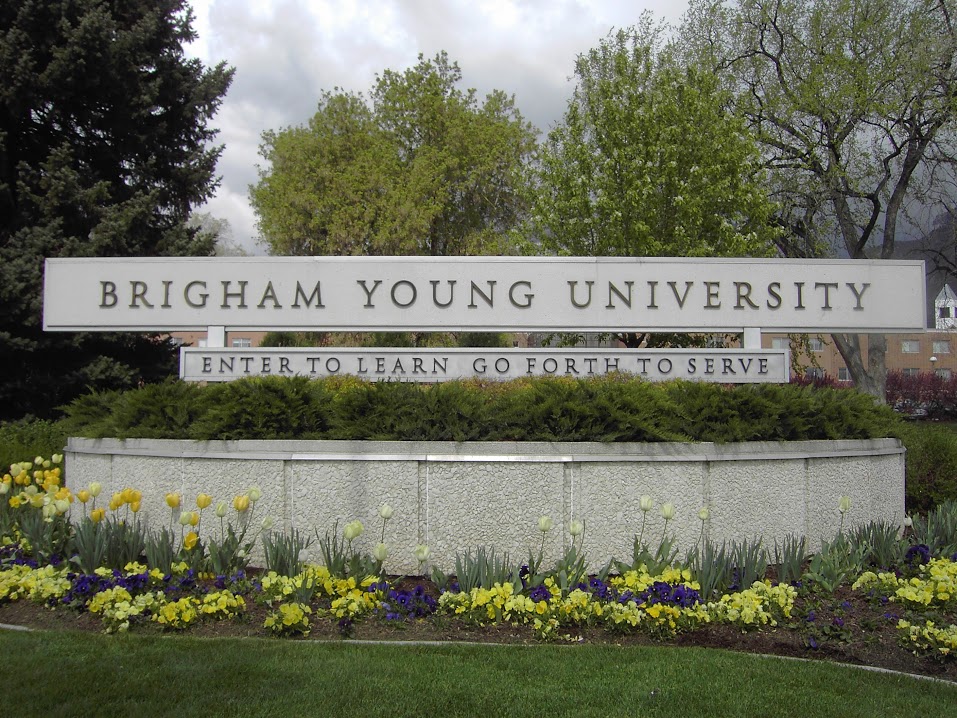I ran across a talk by Henry B. Eyring called Education for Real Life that I found to be really insightful and inspiring. It goes along well with some things that I was talking about in my last post about weaving spiritual and secular learning together, so I’m going to dive into more of that here…
“If we will keep spiritual learning in its proper place, we will have to make some hard choices of how we use our time. But there should never be a conscious choice to let the spiritual become secondary as a pattern in our lives. Never. That will lead to tragedy. The tragedy may not be obvious at first, nor may it ever be clear in mortal life. But remember, you are interested in education, not just for mortal life but for eternal life. When you see that reality clearly with spiritual sight, you will put spiritual learning first and yet not slight the secular learning. In fact, you will work harder at your secular learning than you would without that spiritual vision. …
“…And since what we will need to know is hard to discern, we need the help of heaven to know which of the myriad things we could study we would most wisely learn. It also means that we cannot waste time entertaining ourselves when we have the chance to read or to listen to whatever will help us learn what is true and useful. Insatiable curiosity will be our hallmark.” (Henry B. Eyring)

I love these verses in the Doctrine & Covenants where the Lord outlines for us what we should learn, and why we should learn it.
“Also, I give unto you a commandment that ye shall continue in prayer and fasting from this time forth.
And I give unto you a commandment that you shall teach one another the doctrine of the kingdom.
Teach ye diligently and my grace shall attend you, that you may be instructed more perfectly in theory, in principle, in doctrine, in the law of the gospel, in all things that pertain unto the kingdom of God, that are expedient for you to understand;
Of things both in heaven and in the earth, and under the earth; things which have been, things which are, things which must shortly come to pass; things which are at home, things which are abroad; the wars and the perplexities of the nations, and the judgments which are on the land; and a knowledge also of countries and of kingdoms—
That ye may be prepared in all things when I shall send you again to magnify the calling whereunto I have called you, and the mission with which I have commissioned you.” (Doctrine & Covenants 88:76-80)
First, what we should learn. What do all of those things in verse 79 mean?
This morning as my kids and I were discussing this, these are the things that we brainstormed and wrote down…
–things in heaven: space, planets, stars (astronomy)
–things in the earth: rocks, soil, lava, water, plants, insects, animals (geology, agriculture, hydrology, oceanography, botany, biology, entomology, zoology)
–things under the earth: this one stumped me a little, but I thought maybe it could be referring to the deceased (those buried under the earth), the spirit world, family history (genealogy)
–things which have been: historical events, people, places, etc. (history)
–things which are: current events
–things which must shortly come to pass: future events (events prophesied by prophets throughout time, revelation)
–things which are at home: homemaking, home building, home maintenance, relationship skills; homeland culture, events, etc.
–things which are abroad: international events (social studies)
–the wars and perplexities of the nations: wars, international relations
–the judgments which are on the land: government, laws (both man made laws and God’s laws), math, physics
–a knowledge also of countries and kingdoms: cultures, religions (social studies, language arts, fine arts, geography)
Here is what Spencer W. Kimball has to say about them:
““Things … in heaven” might be the study of astronomy and related subjects. To know and appreciate the wonders of the heavens cannot but increase our appreciation of God and his great wisdom and power.
The counsel to learn of things “in the earth” echoes the commandment given to Adam and Eve to replenish the earth and subdue it. The Lord has also said in these last days, “The fulness of the earth is yours, … Yea, all things which come of the earth … are made for the benefit and the use of man. … And it pleaseth God that he hath given all these things unto man.” (D&C 59:16, 18, 20.) To understand the soil and the seasons is a fascinating study for all families as well as for scientists. A garden for every home, even if only a window box, can furnish beginning knowledge for all ages.
Subduing the earth also involves the engineering sciences as well as biology, geology, and other sciences that study the earth’s land, air, and water. The study of land and water must also consider that which is “under the earth” and all the potentials of nature and its elements.
To study “things which have been” is to delve into history, a lifetime challenge. In addition, current events, or history in the making, should give us concern for careful study.
To learn of “things which are at home” could mean a great invitation to all Latter-day Saints to become masters in the science and art of home building and homemaking; husband and wife relationships; parent and child relationships, training, leadership, teaching, and felicity; and all that is associated with family life, in order that we might become masters in loving and teaching others throughout eternity.
The “wars and perplexities of the nations” is a great concern to us now that the world is a large community. Perplexities afflicting one people affect the lives of others distantly removed.
Gaining “a knowledge of countries … and kingdoms” will be found in a study of political and physical geography, languages, and customs.” (Spencer W. Kimball, Seek Learning, Even By Study and Also By Faith, September 1983)
It’s clear that God wants us to obtain a broad and deep education. But it’s also clear that He doesn’t want us to separate the spiritual from the secular. The spiritual will deepen, enlarge, and clarify the secular.

Now that we know the what, let’s explore the why…
The answer to the why is found in verse 80: “That ye may be prepared in all things when I shall send you again to magnify the calling whereunto I have called you, and the mission with which I have commissioned you.”
The education and knowledge that we gain helps us to better fulfill our life purpose and mission…which mission will always be about helping and serving.
As a BYU motto goes, Enter to learn, go forth to serve.

“The thirst for education that comes with the change the gospel brings can be a blessing or a curse, depending on our motives. If we continue to seek learning to serve God and His children better, it is a blessing of great worth. If we begin to seek learning to exalt ourselves alone, it leads to selfishness and pride, which will take us away from eternal life.
That is one of the reasons we should always put spiritual learning first. And that is why the Church has placed institutes of religion across the earth wherever young members are gathered in sufficient numbers. Their spiritual education in the institute will shape the purpose and speed the process of their secular learning. …
Let’s start with the purpose of our learning. The Lord and His Church have always encouraged education to increase our ability to serve Him and our Heavenly Father’s children. For each of us, whatever our talents, He has service for us to give. And to do it well always involves learning, not once or for a limited time, but continually.” (Henry B. Eyring)
God has a work for us to do and He wants us to use the knowledge and power that we gain through our learning to empower others. I wrote more about that here.
“Your life is carefully watched over, as was mine. The Lord knows both what He will need you to do and what you will need to know. He is kind and He is all-knowing. So you can with confidence expect that He has prepared opportunities for you to learn in preparation for the service you will give. You will not recognize those opportunities perfectly, as I did not. But when you put the spiritual things first in your life, you will be blessed to feel directed toward certain learning, and you will be motivated to work harder. You will recognize later that your power to serve was increased, and you will be grateful.” (Henry B. Eyring)
I love that this talk is called Education for Real Life. In regards to education, we often say that we are preparing our children for “real life.” But real life isn’t just adulthood and paying bills. Real life is eternal life. That’s what I want to prepare my children for. I’m not raising my children with the goal of them just getting into college and getting a great job someday (although that would be a bonus). I’m raising my children for eternity, to live with the Creator of the world, and to become like Him.
“The real life we’re preparing for is eternal life. Secular knowledge has for us eternal significance. Our conviction is that God, our Heavenly Father, wants us to live the life that He does. We learn both the spiritual things and the secular things “so we may one day create worlds [and] people and govern them” (Spencer W. Kimball, The Teachings of Spencer W. Kimball, ed. Edward L. Kimball [1982], 386). All we can learn that is true while we are in this life will rise with us in the Resurrection. And all that we can learn will enhance our capacity to serve.” (Henry B. Eyring)
“And as all have not faith, seek ye diligently and teach one another words of wisdom; yea, seek ye out of the best books words of wisdom; seek learning, even by study and also by faith.” (Doctrine & Covenants 88:118)


I really love this post, Shelly. It especially resonated as I (like so many families around the world) am finding myself homeschooling my kids. I was especially struck by the message that continued and intentional learning is not just for this life, but for our eternal life. This is so powerful to me
I love that as well. I love having purpose and meaning in education – that goes beyond getting a good job and making money.
Sooooo grateful for the goodness of pondering these things this morning! Thank you, Shelly!